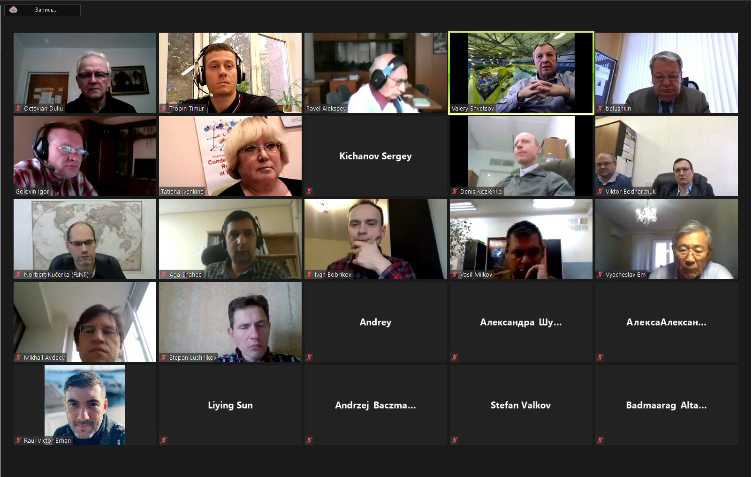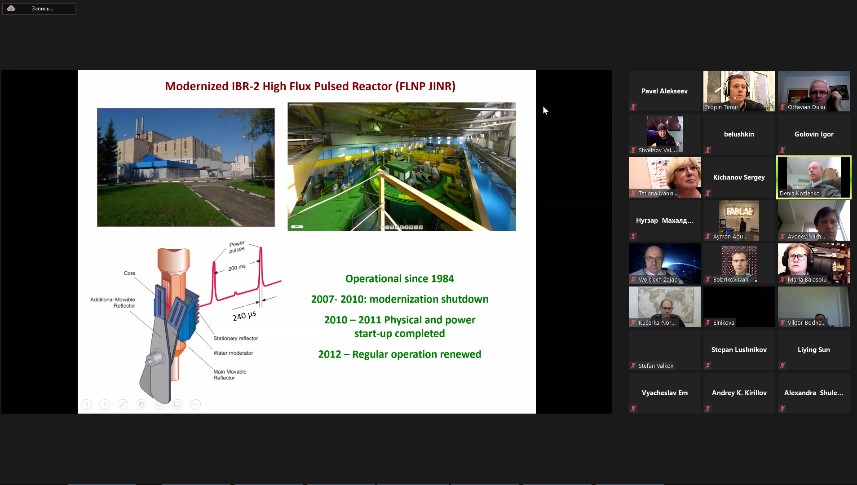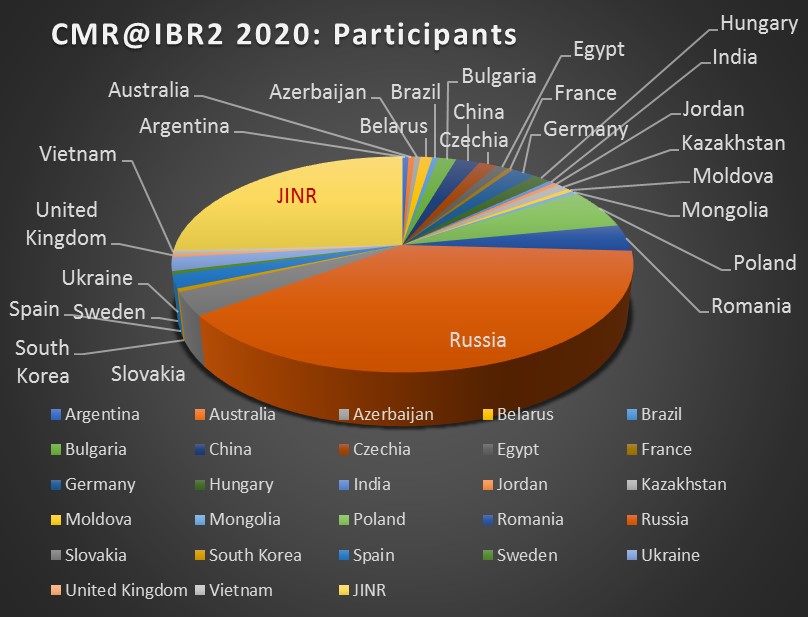About the past Conference on Condensed Matter Research at the IBR-2 reactor
News, 23 October 2020
The International Conference “Condensed Matter Research at the IBR-2 Reactor” was organized and held from October 12 to 16, 2020 by the Frank Laboratory of Neutron Physics of the Joint Institute for Nuclear Research, Dubna. Due to the unfavorable epidemiological situation with the COVID-19 pandemic, the Conference was moved online and conducted in the video conference format.
The videoconference helped bring together more than 200 scientists from 27 countries from almost all continents from Australia to South America around their monitors. Holding the Conference online, on the one hand, had disadvantages because of the lack of live communication, but on the other hand, it made it possible to significantly increase the total number and geography of its participants. In addition to the traditional participation of researchers from countries that have been actively cooperating with JINR for many years – Azerbaijan, Bulgaria, Poland, Romania, Moldova, Czech Republic, Slovak Republic, Hungary, Germany, Belarus, Ukraine and Russia, the geography of participants has significantly expanded to include researchers from Argentina, Australia, India, Jordan, Spain, China, Sweden, South Korea and other countries.
The aim of the already traditional conferences on condensed matter research at the IBR-2 reactor is to discuss the obtained experimental results, promising areas of research and development of experimental instruments at the IBR-2 reactor.
During 5 days of the Conference, the participants presented more than 60 plenary reports and 85 posters. The Organizing Committee of the Conference managed to attract a number of world-famous specialists in the field of condensed matter physics, chemistry, biophysics, materials science, engineering and Earth sciences, which determined the high scientific level of reports and a wide variety of research areas in interdisciplinary natural sciences. The thematic reports were also devoted to the improvement of neutron scattering techniques, the development of setups for neutron investigations and their components, including neutron detectors.
At the Conference, special attention was paid to the concept of a new neutron source at FLNP JINR, which will replace the IBR-2 reactor upon the expiration of its service life within the next 20 years. Information was presented on the current progress in developing the concept of a new neutron source and a long-term work plan for 15 years.
The participants of the Conference noted the high level of organization of the event, its fruitful nature and the fact that it contributed to attracting both representatives of the international neutron community and specialists from various fields of knowledge to the implementation of the scientific research program at the IBR-2 reactor, discussion of promising scientific directions, and development of research infrastructure.
T.I. Ivankina, Scientific Secretary of CMR@IBR-2


